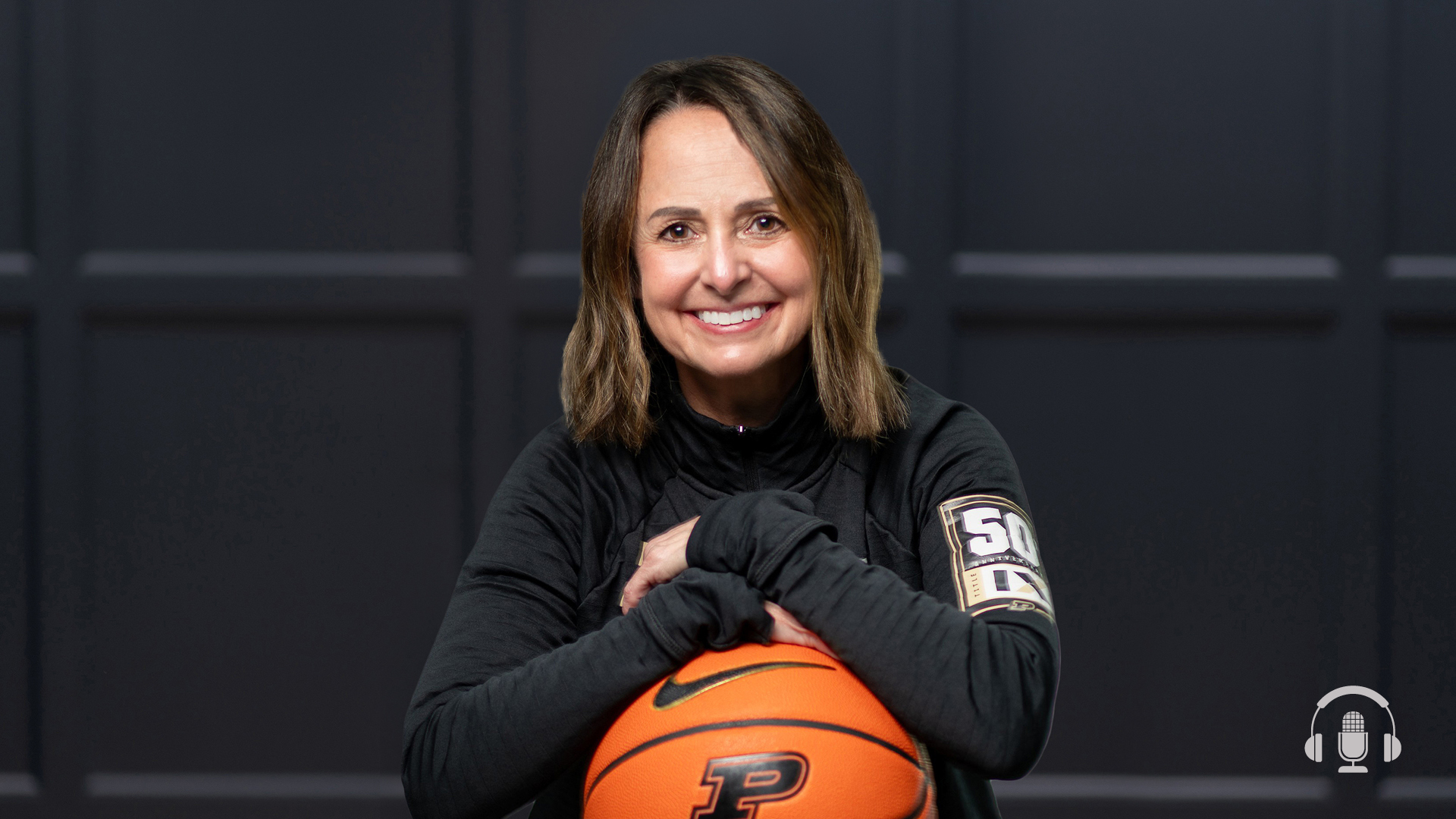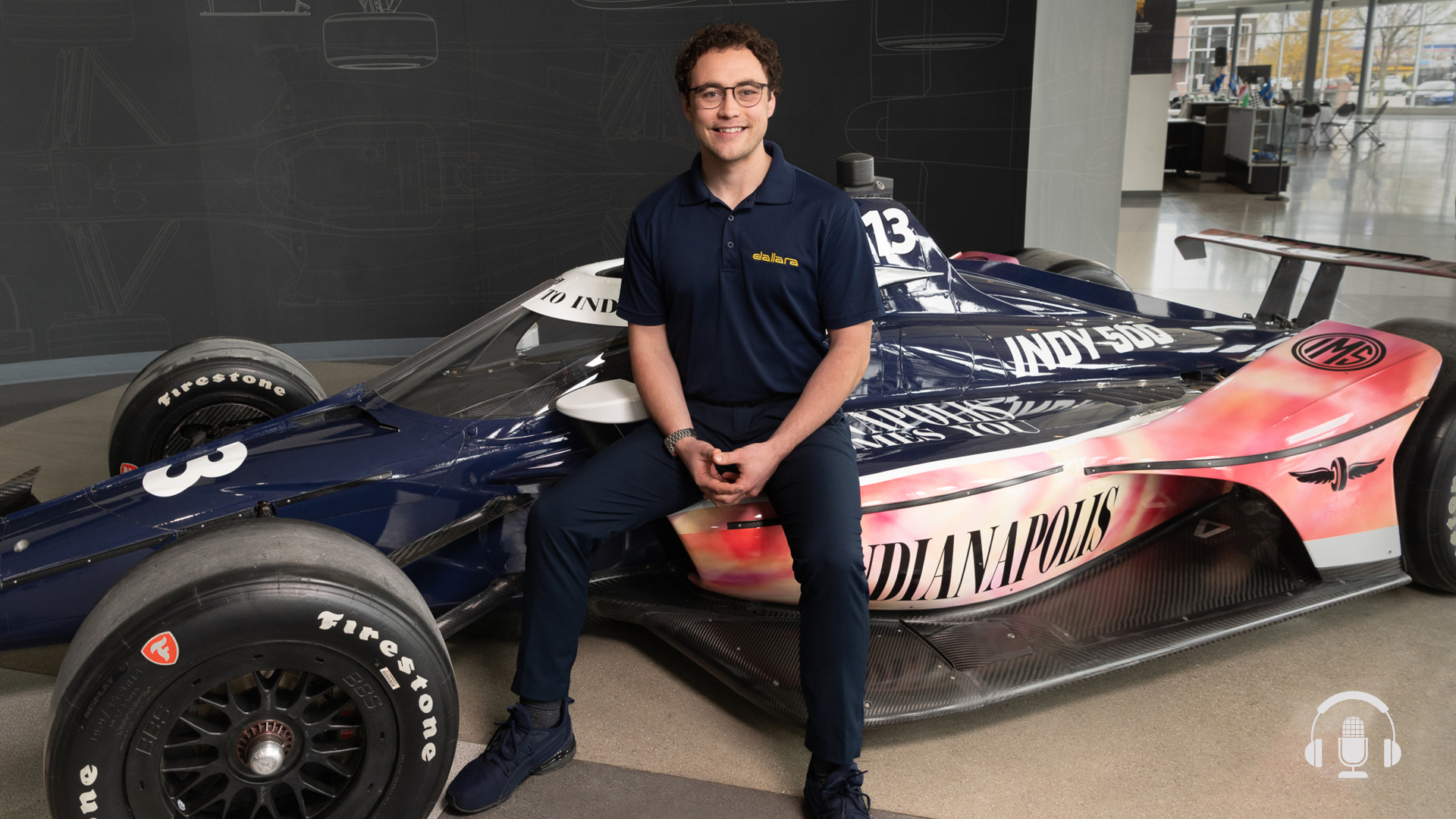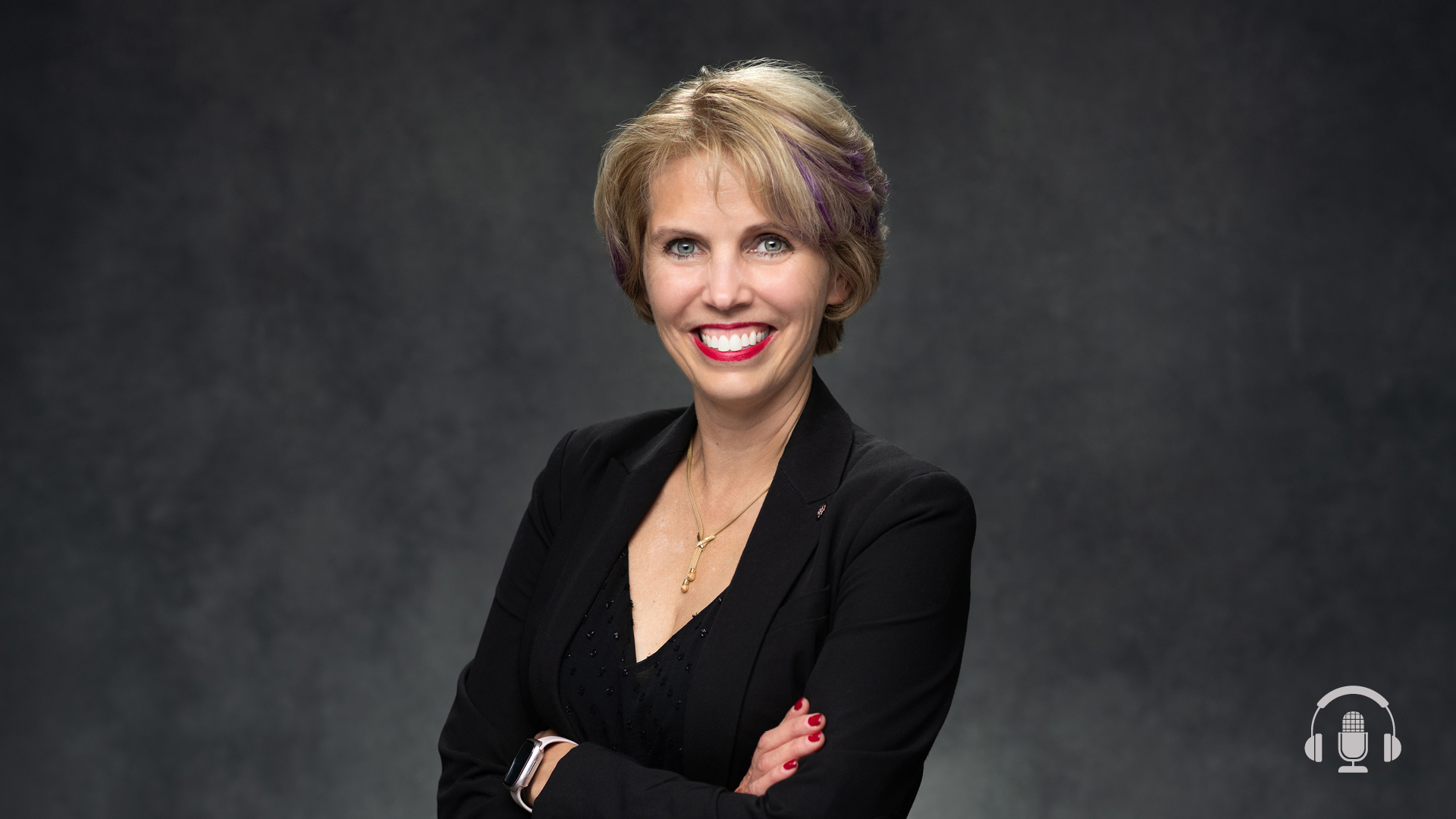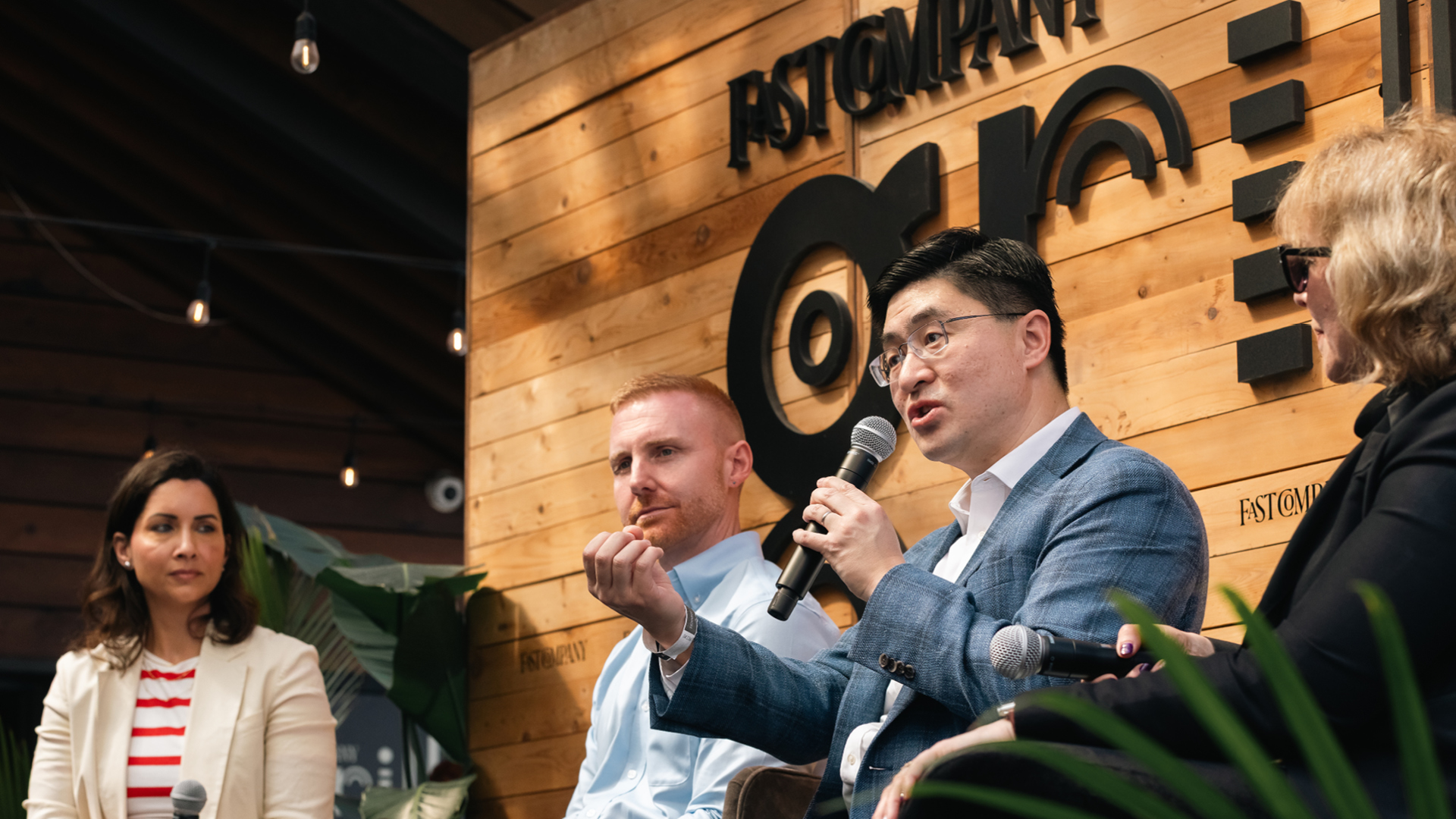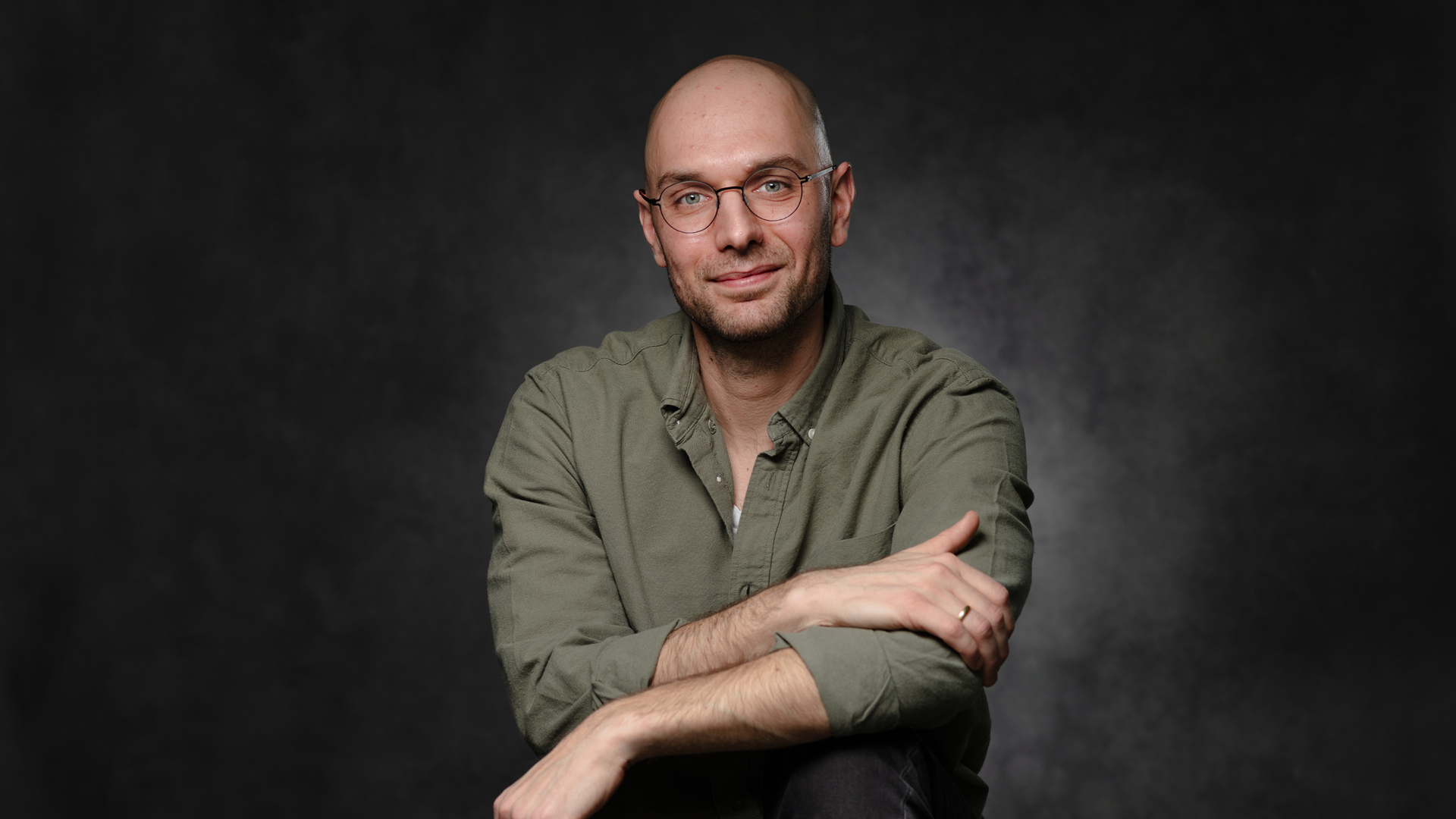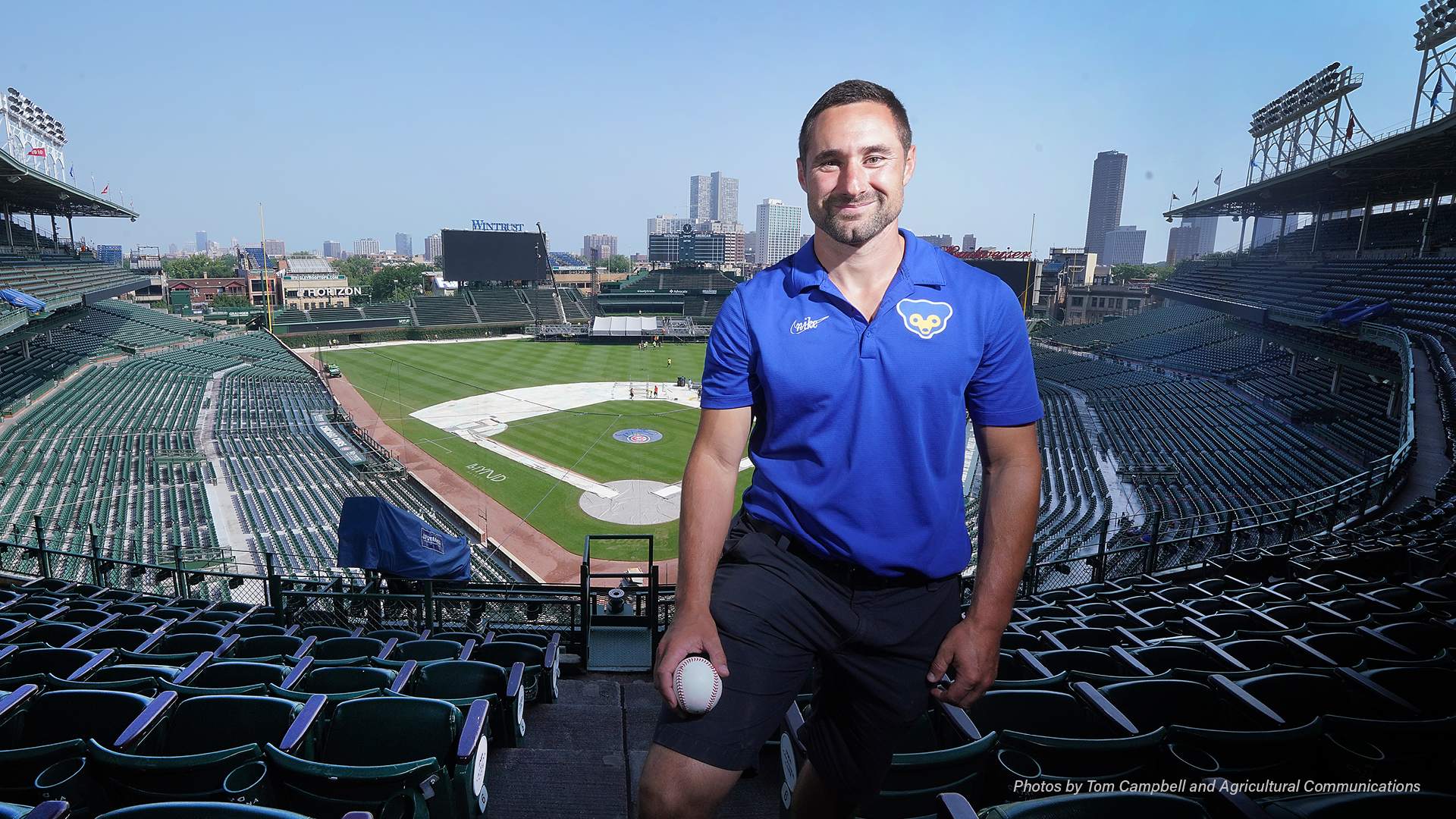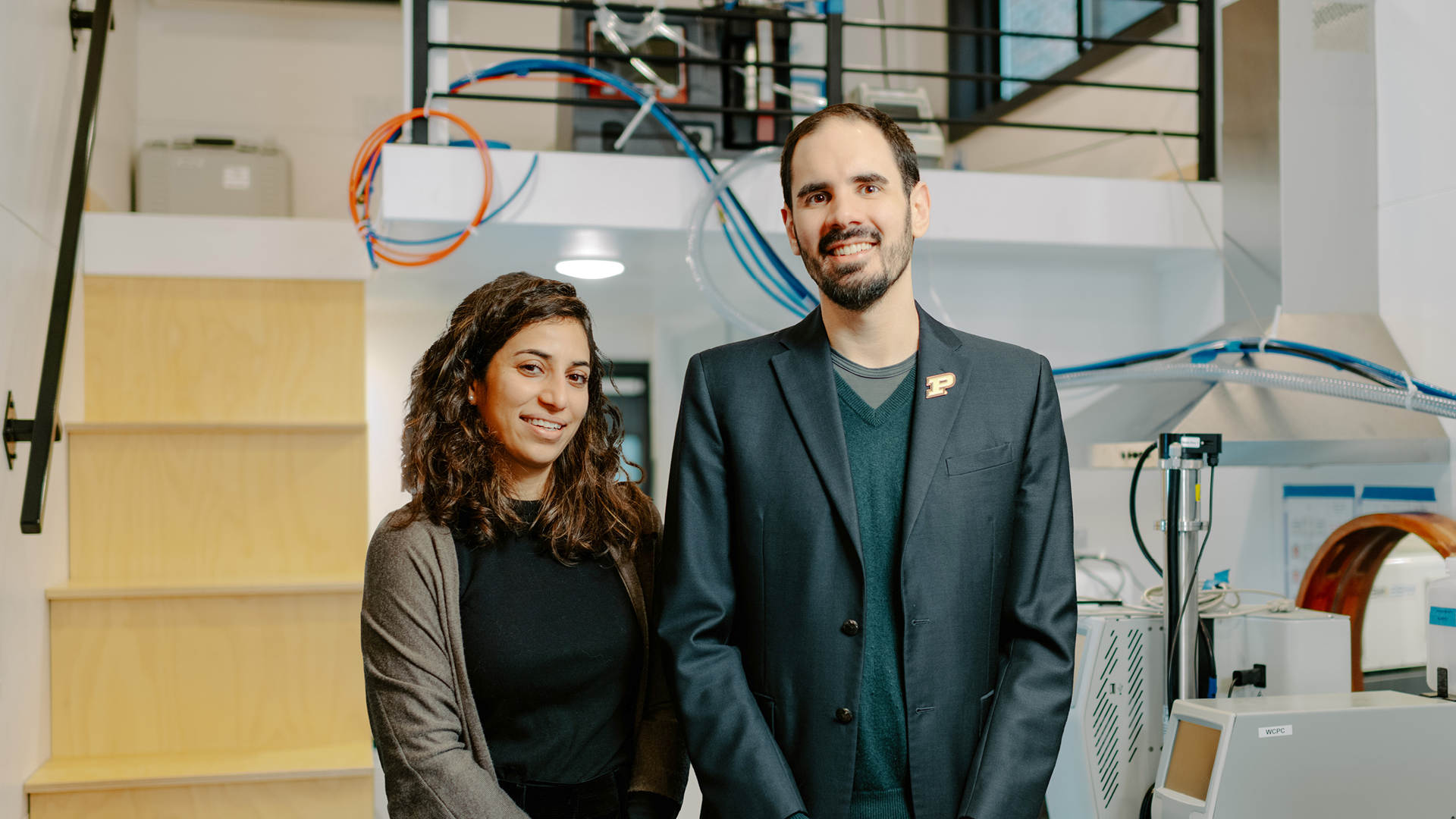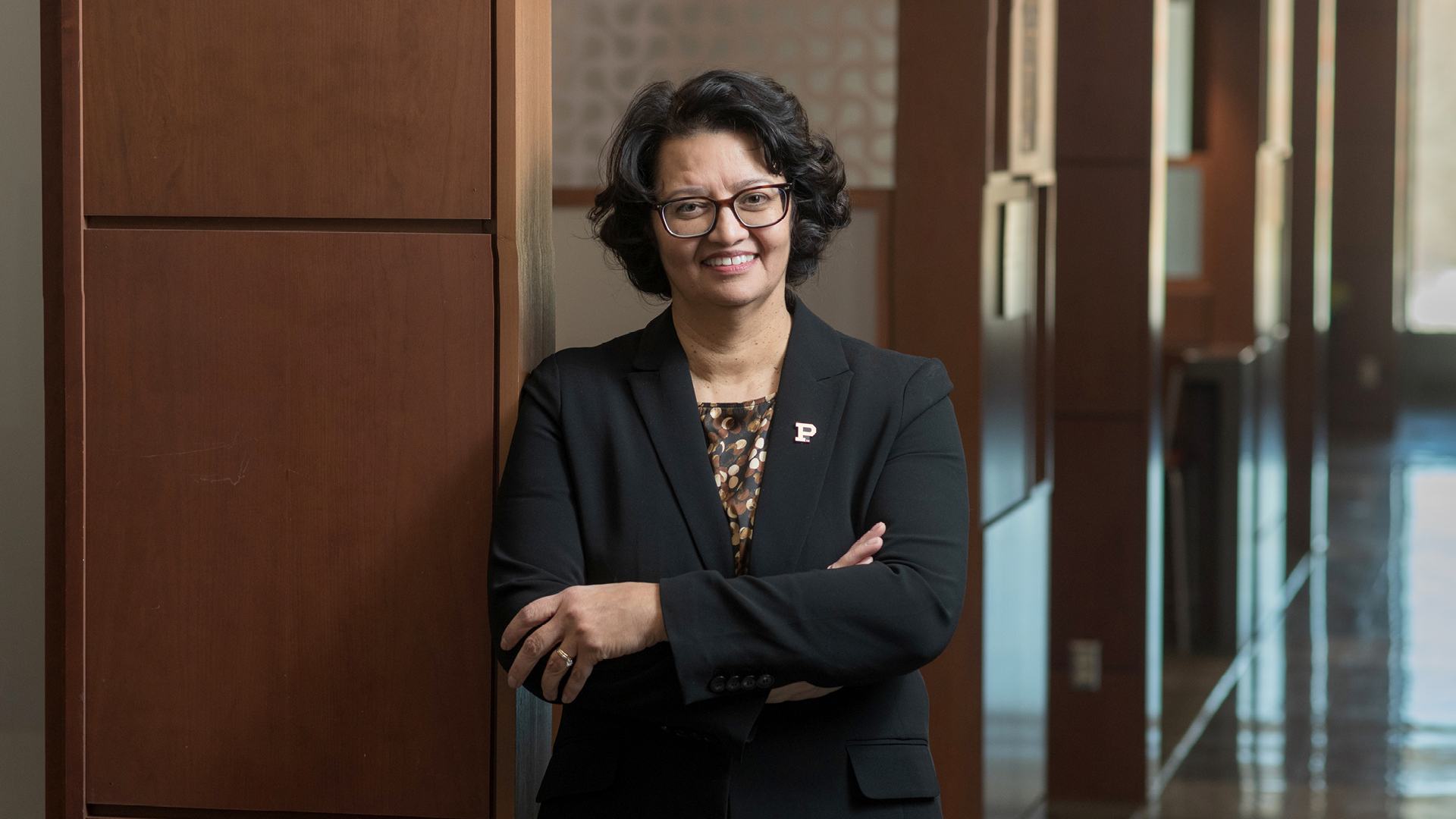Podcast Ep. 86 – Susan Edgell Discusses How Her Mother, Virginia Ferris, Became the First Woman Appointed to Purdue Agriculture Faculty
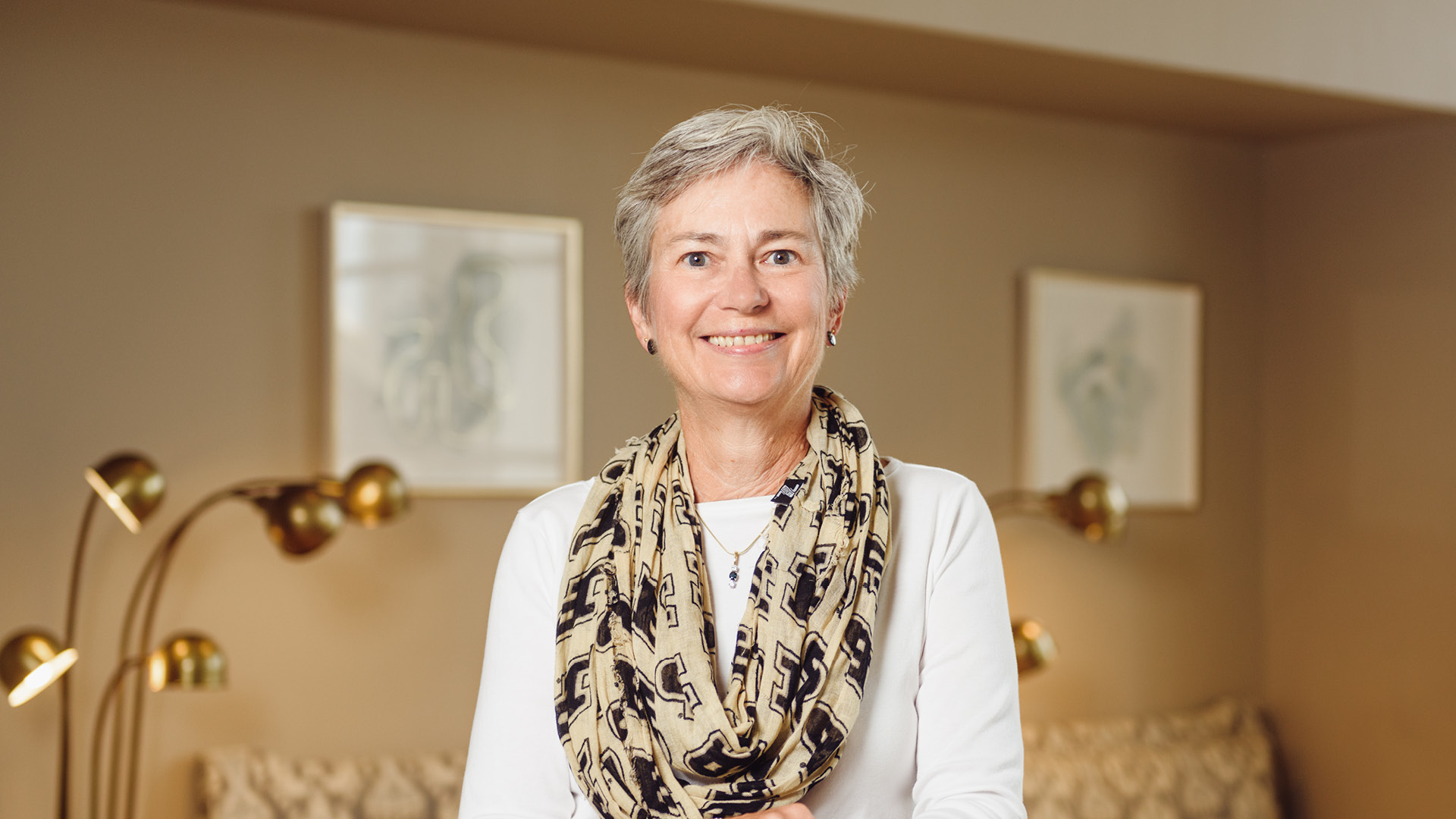
In this episode of “This Is Purdue,” we’re talking to Susan Edgell, the daughter of Purdue University trailblazer Virginia Ferris.
Virginia was the first woman appointed to the College of Agriculture faculty and had a significant influence on the department’s teaching, research and culture. She was also one of the world’s leading experts on the soybean cyst nematode.
Susan shares stories about growing up in the Boilermaker community from her time at the Purdue nursery school to the memories she has of traveling for her parents’ nematode research.
She reflects on her mother’s journey navigating higher education as a woman in the 1950s, a time when academics were centered around the success of men, plus discusses her mom’s self-taught DNA research and the joy she had for mentoring Purdue students.
Listen as Susan shares her mother’s advice for women in male-dominated fields and how Virginia’s legacy of persistence helped pave the way for a new generation of women and diversity in STEM.
- Learn more about Virginia Ferris
- Learn more about Purdue University’s College of Agriculture
- Learn more about the Virginia R. Ferris Memorial Endowment
Full Podcast Episode Transcript
Kate Young:
Hi, I’m Kate Young and you are listening to This is Purdue, the official podcast for Purdue University. As Purdue alum and Indiana Native, I know firsthand about the family of students and professors who are in it together, persistently pursuing and relentlessly rethinking who are the next game changers, difference makers, ceiling breakers, innovators? Who are these boiler makers. Join me as we feature students, faculty, and alumni taking small steps toward their giant leaps, and inspiring others to do the same.
Susan Edgell:
She had some very strong traits. Persistence and adaptability I would say, are key traits for my mom. In the late 80s when people stopped looking through microscopes, and started looking at DNA, she decided she was going to teach herself about DNA and how to extract it from nematodes. Nobody knew how to do it yet, it was a cutting edge. So she decided that she would get up at 3:00 in the morning every single day and study and learn, which she did.
Kate Young:
In this episode of This is Purdue, we’re talking to Susan Edgell, the daughter of Purdue University trailblazer, Virginia Ferris, who was the first woman appointed to the College of Agriculture faculty. Virginia was a scientist, a researcher, professor, nematologist, mentor, wife, mother, and so much more. She was also the first woman to be elected president of the Society of Nematologists, and and was honored as one of 15 women pioneers of Purdue University by the council on the status of women back in 2006, along with former pilot and Purdue faculty member Amelia Earhart. She was an internationally renowned researcher of nematodes, microscopic roundworms that can transmit diseases or attack soil, water, and insects. And was one of the world’s leading experts on the soybean cyst nematode, a destructive plant parasite that cost producers millions of dollars in crop damage.
Virginia’s legacy of persistence truly helped pave the way for a new generation of women and diversity in STEM, and she had a significant influence on Purdue’s Department of Entomology teaching research extension and culture. We caught up with Virginia’s daughter, Susan at Purdue for Life’s annual President’s Council Weekend in Naples, Florida. You’ll hear Susan discuss her mom’s resilient journey as she navigated higher education as a woman in the 1950s, 60s and 70s, a time when academics were largely centered around the success of men. Susan grew up right on Purdue University’s campus, and we kicked off our interview by discussing her earliest memory of Purdue.
Susan Edgell:
I grew up in West Lafayette. My parents taught at Purdue. My earliest memory of Purdue is going to the Purdue Nursery School, so at about age two. So we are definitely a Purdue family. My mother has been a trailblazer for women at Purdue University. She was that her entire career. I don’t remember not being part of the Purdue community. Honestly, it was just such a part of the fabric of our lives.
Kate Young:
Susan reflects back to the early 1950s, when her mother entered Cornell University as the only incoming female graduate student in plant pathology. Virginia was later told by a professor to give up her National Science Foundation graduate research fellowship program free ride scholarship to earn her PhD, so that a man could accept it instead. But Virginia didn’t listen.
Susan Edgell:
We’re talking about 70 years ago, and the world was very, very different. She emerged from graduate school. Well, she went to graduate school at Cornell and got an NSF fellowship to have a free ride to get her PhD. And her major professor pulled her aside and said, “Virginia, you can’t take that.” And she said, “Why?” And he said, “Well, you’d be taking it from a man, and you’re just going to get married and have babies and quit.” That is where we started on this journey. She did take the fellowship, got a free ride, met and married my father, John Ferris. The two of them were lifelong lab partners and best friends.
She got pregnant with my older brother, and the department discovered it, and they had to have a faculty meeting to decide if she could come attend the faculty meetings. They decided she could, but she had to wear a big lab coat so they couldn’t see anything. And so the professor who ran the lab said to her, “Virginia, as soon as that baby comes, I need your letter of resignation on my desk, or I will fire you and that will not look good on your record.” So she essentially was forced out of her first job at Cornell.
Kate Young:
I know, I know. It’s hard to imagine anything like that now. But as Susan said, the world was much different back then than it is today. In fact, Virginia herself was quoted in an article saying many of the women she later mentored at Purdue found her stories hard to believe. So fast forward a few years and Susan’s dad, John Ferris, was hired as an assistant professor at none other than Purdue University. When John joined the Purdue faculty in 1958, Virginia set up a home lab and conducted research there as a freelance consultant. Susan shares more.
Susan Edgell:
Nematologists were thin on the ground, let’s put it that way. My father’s a nematologist at Purdue University, he has this wife, and she also is a nematologist by this time, and she has set up a consulting organization in her own name. Except her own name is not Virginia R. Ferris, it’s V.R. Ferris, so no one knows she’s a girl. And so she becomes internationally known as V.R. Ferris. But of course, everyone at Purdue University knows that it’s John’s wife, Virginia. They put up a laboratory in our basement. She bought herself her own microscopes, and had this huge consulting opportunity running out of our basement.
So she was going to get a three year grant from the NSF, but it came on the condition that she get hired or affiliated with Purdue University. That was a tough sell. But finally she convinced the department head, but she was paid half of what a male would have been paid in her position, because they were already paying my father a full salary. You can’t have two salaries in one family. So she becomes an assistant professor at Purdue. They publish, they do research, they do groundbreaking things together.
Kate Young:
By 1974, Virginia had served as an associate professor, assistant dean of the graduate school, an assistant provost at Purdue. Susan says her mom had to play some “hardball” to become a full professor earning full-time pay within the Department of Entomology. And so in 1974, Virginia became one of less than half a dozen female full professors in the university, and the only one in the College of Agriculture. So now that we know a bit of background on this trailblazing boiler maker, Susan shares more about what it was like to grow up with her parents, two innovative professors and researchers.
Susan Edgell:
We traveled extensively. My parents studied nematodes. And nematodes are microscopic organisms that live pretty much everywhere. They’re very ancient. So they wanted to collect soil samples and find these organisms, these nematodes. And they preferred old growth areas, places that had not been disturbed. So we went to every single state and national park in the entire country at least once. We pulled a little tiny travel trailer which had soil washing equipment and my mom’s microscopes of course. And they did some calculations on the back of an envelope and discovered how many pounds of soil each of their two children could carry in a backpack before they complained too badly. And then they wondered why neither of us went into biology. I don’t know.
Kate Young:
Susan highlights some of her favorite memories growing up in the boilermaker community.
Susan Edgell:
So, my parents were passionate about Purdue athletics, and they had football and basketball tickets, of course, really good seats. And so my brother and I loved going to the games with them. That was a real big part of growing up. But they also had tickets to all the convos that came through on the convo series. And I distinctly remember sitting as close to Itzhak Perlman as I am from you watching his bow work. It was just magical. We did the Christmas show, the Glee Club, everything. We partook of all of the culture that tends to slosh through a college town, but the football games just really stand out in my memory. I am an American. I mean, doesn’t that just bring chills to yourself when you hear it?
Kate Young:
Susan followed in her mom’s footsteps and attended Wellesley College for undergrad, and later Cornell for law school. She says, although she didn’t go into the science field like her parents, she did follow her mom’s career advice.
Susan Edgell:
So, my mom’s career advice to everyone who had listened, and she mentored thousands of people in her career. She actively stroked to mentor young women, of course. But her career advice was, find what you love and make it your career. And so that was the career advice she gave my brother and I. And as I’ve said, neither of us went into biology, but she was very supportive. I went to Wellesley College, as did she, and then I went to Cornell Law School. And it was fun visiting the Cornell campus with my parents, having them show me where they met, where they did their research, where everything happened. That was a lot of fun.
Kate Young:
As Susan was telling our This is Purdue team about her mom’s obstacles throughout her career, one thing stuck out above the rest. Her husband John was her colleague, collaborator and best friend.
Susan Edgell:
Well, they were a team, inseparable team. They published many, many papers, Ferris and Ferris, and sometimes it would be V. Ferris, J. Ferris and sometimes the other way around. In fact, one time the department head stormed into their office, their laboratory and said, “Who is doing what? I never know which of you is doing the work.” And the answer was, “We’re both doing it.” So they were very supportive with each other the whole way through. It was a joy growing up the daughter of two such passionate scientists, who were such close colleagues in and out of the laboratory. She mentored many, many, many young women over her career. She and my dad were faculty fellows at Earhart Hall for 30 years, and they would go and have dinner or lunch there a couple of times a week. And the women would sit down, and they would pour out their heart to my parents.
They would listen and give advice, no nonsense advice I’m very sure. And sometimes if it was a problem with a professor or a class, they would make a quiet conversation, a phone conversation and help things. Since they passed, I have heard so many stories from so many young women who were from Earhart Hall, and remembering those dinners and that advice that they got. But it wasn’t just the undergraduates, the graduate students too. She mentored every graduate student that came through the entire program, whether it was her graduate student or not. And I continued to exchange letters and emails with some of her graduate students who are out there in the big wide world.
Kate Young:
That must have been so special growing up with that team as parents, right?
Susan Edgell:
Mm-hmm. Yes, it was. They were a team.
Kate Young:
After years of research and working alongside John and a team of fellow Purdue researchers, Virginia identified genes in soybeans that provided resistance to the cyst nematode, a destructive plant parasite that has cost producers millions of dollars in crop damage. The Purdue patented technology licensed as CystX, is now commercially available in many soybean varieties. The research earned the group the 2001 Purdue Agriculture Team Award, which honors the achievements of faculty and staff who collaborate on interdisciplinary teams. Susan discusses her parents’ groundbreaking research.
Susan Edgell:
The work that they did to get a patent for nematode resistant soybean, it is top of list. The Purdue Research Foundation has that patent. Farmers began using that seed corn in the late 2000s, and have had higher yields as a result. That’s very exciting. But there’s so much that they did together.
Kate Young:
How was it growing up with your mom who was such a trailblazer for women? What did she instill in you?
Susan Edgell:
So, I have to say that as a child growing up in a family with my own interests, I took her for granted. I took for granted that my parents were internationally known biologists, that they went on summer trips to Gent or to another country, just because they had expertise and people wanted to hear them speak or teach. I just took that for granted. It was great to grow up with it but the idea that she was doing something novel and new, really only hit home to me once I grew up and looked back at the struggles she had, and what she had to overcome. So she had some very strong traits. Persistence and adaptability, I would say are key traits for my mom.
And she tried to instill those in her children, of course. But in the late 80s, when people stopped looking through microscopes and started looking at DNA, she decided she was going to teach herself about DNA, and how to extract it from nematodes. Nobody knew how to do it yet, it was a cutting edge. So she decided that she would get up at 3:00 in the morning every single day and study and learn, which she did. And then that actually was a habit that continued until the end of her life. Then the two of them began doing that. And again produced some remarkable outcomes, including the patent on the soybean.
Kate Young:
Virginia is the epitome of a persistent boilermaker. Susan shares what the word persistence means to her.
Susan Edgell:
To me, persistence means having the desire and the capability to keep going, no matter the setbacks. To identify the roadblocks and to go around them, over them, or under them. And not to be put off or stopped because someone else has a different idea for your life.
Kate Young:
And Susan says, when it comes to Purdue as a whole, she doesn’t think of her mom or her dad or any single one person.
Susan Edgell:
I think of it as a composite. I don’t think of it as any one person, place or thing. But I think of the campus as a whole, and the vibrant nature of the community, the community spirit at Purdue. That’s what I really think about. And we’ve been in Naples now for a few weeks. And when we first went to the beach, I put on my Purdue ball cap and went walking, confident that I knew no one on that beach. And every third person was, “Boiler up! Yes, go Boilers!”
Kate Young:
That was amazing.
Susan Edgell:
Yes. I am convinced that the Purdue community is very cohesive, and works to support their own. That’s tremendously important in a college community I think.
Kate Young:
As for what Virginia would think of Purdue’s innovation and inclusion today, Susan is certain she would be incredibly proud.
Susan Edgell:
Back in the day when she arrived at Purdue and was being paid halftime for a full-time position, I’m not sure she ever could have known at that point in time, that Purdue would be so embracing of all kinds of diversity. The world changed, Purdue changed, it adapted, it embraced. There’s been so many talented people come through Purdue University.
Kate Young:
Although Susan herself didn’t go to Purdue, her brother and her husband attended Purdue and are proud boilermakers. After Virginia passed away in August of 2017, Susan and her brother established the Virginia Ferris Memorial Endowment Graduate Student Research Award the next year. This award honors their late mother, and recognizes a female graduate student considered an emerging leader in their field. The 2023 recipient was Hannah Kernen. We also linked more information on this award in our podcast show notes if you want to learn more. For Susan, her mother’s legacy at Purdue means so much to her and her family.
Susan Edgell:
So, my mother would constantly talk to me after I left home. It was letters and phone calls. But would constantly talk about how proud she was of her graduate students, or really all of the graduate students. And she had a little ritual. And the department allowed this of course, which was, the first question asked of someone giving a presentation was always from Virginia Ferris. And Dr. Ferris asked very difficult questions. But he had always talked to the student beforehand, and said something along the lines of, “Look, you’re the world expert right now in this particular topic on which your thesis is being built. Don’t be afraid to show us how much more than us you know. And I’m going to ask you a hard question, but you’re going to answer because you know the answer.”
And that just made them feel so good. And of course, they rose to the occasion. We established an endowment in their name to continue their name, so that younger people who may not have encountered them, will still benefit from knowing about the Doctors Ferris. Because it’s a tremendous story, it’s a trailblazing story, but it ended with a wholly different university in terms of acceptance.
Kate Young:
In a Purdue College of Agriculture article commemorating Virginia’s life, it has a quote from the woman who paved the way for so many, by proving herself through her scientific achievements and dedication to the pursuit of research excellence. Virginia said, “Women have proven themselves. There’s no question about it.” Susan ends with sharing some of her favorite advice from her mom.
Susan Edgell:
I would just reiterate my mom’s really good career advice. Find what you love doing, and make it your career. And other than that, Boiler Up!”
Kate Young:
Did you know you can watch our podcast episodes on YouTube? Just head over to youtube.com/@thisispurdue. And remember, follow us on your favorite podcast platform to never miss an episode. This is Purdue is hosted and written by me, Kate Young. At this special podcast shoot during the annual President’s Council weekend in Naples, Florida. Our podcast team consisted of Ted Shellenberger, Jon Garcia, Becky Rubinos, and Trevor Peters. Our social media marketing is led by Ashlee Schroyer and Maria Welch. Our podcast design is led by Caitlin Freeville. Our podcast team project manager is Emily Jessalitis. Our podcast YouTube promotion is managed by Megan Hoskins and Kirsten Wars. And our podcast Research is led by Sophie Ritz. Thanks for listening to This is Purdue. For more information on this episode, visit our website at purdue.edu/podcast. There you can head over to your favorite podcast app to subscribe and leave us a review. And as always, Boiler Up!
